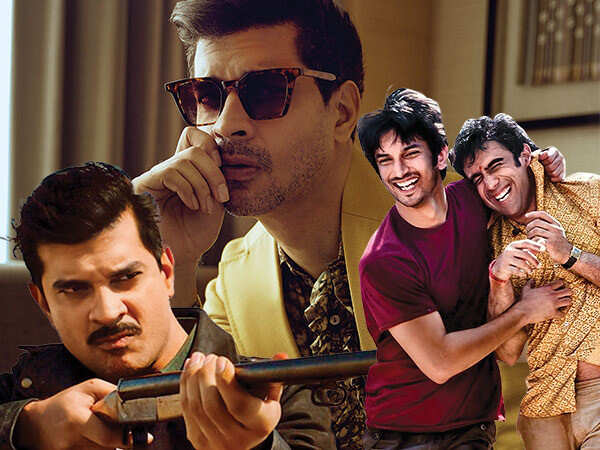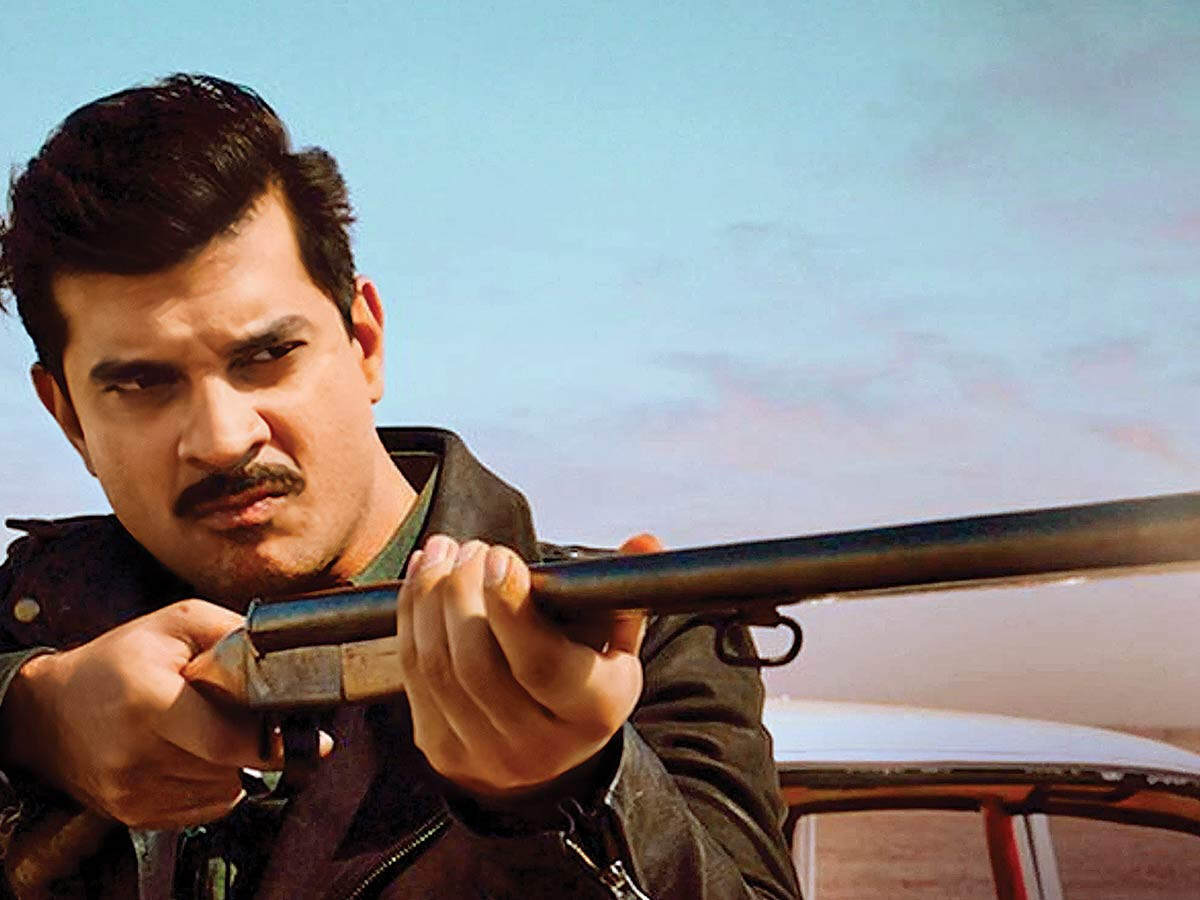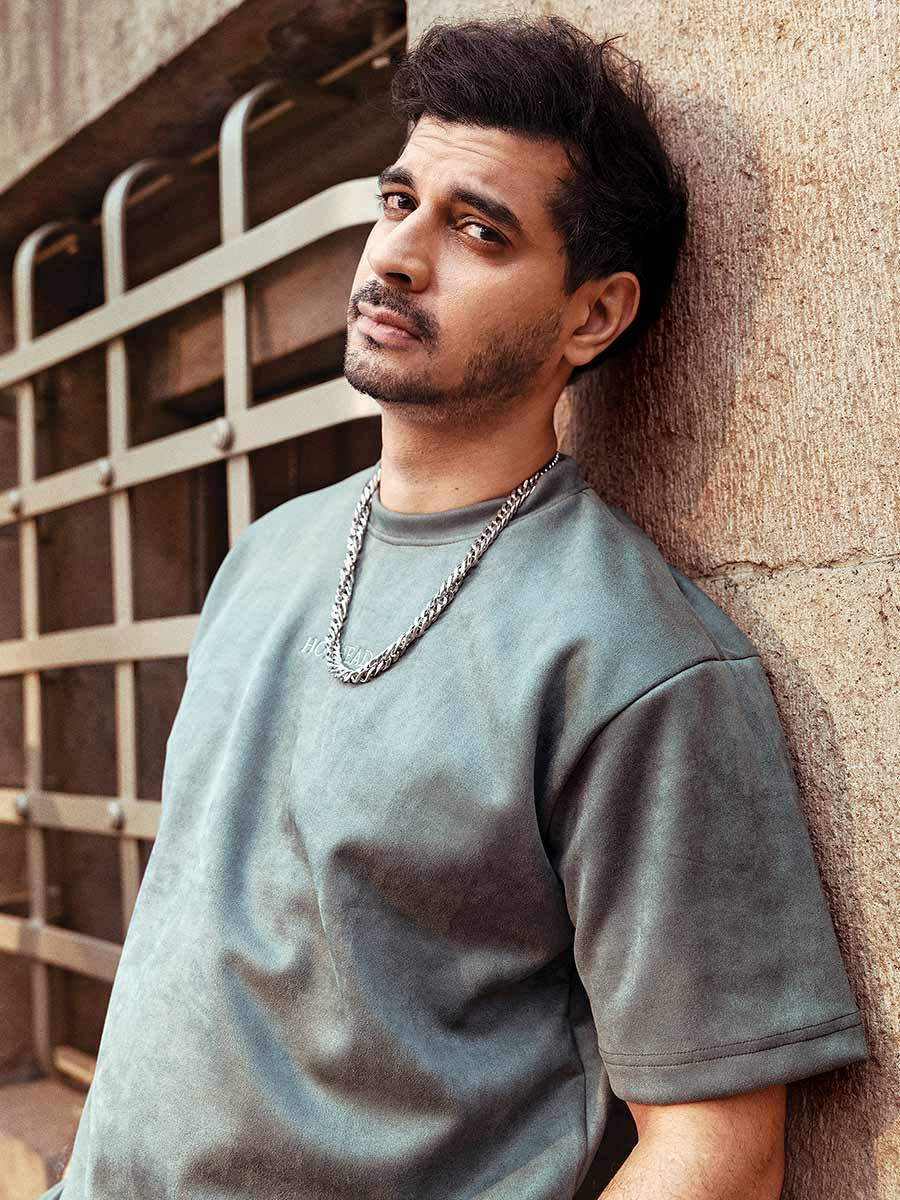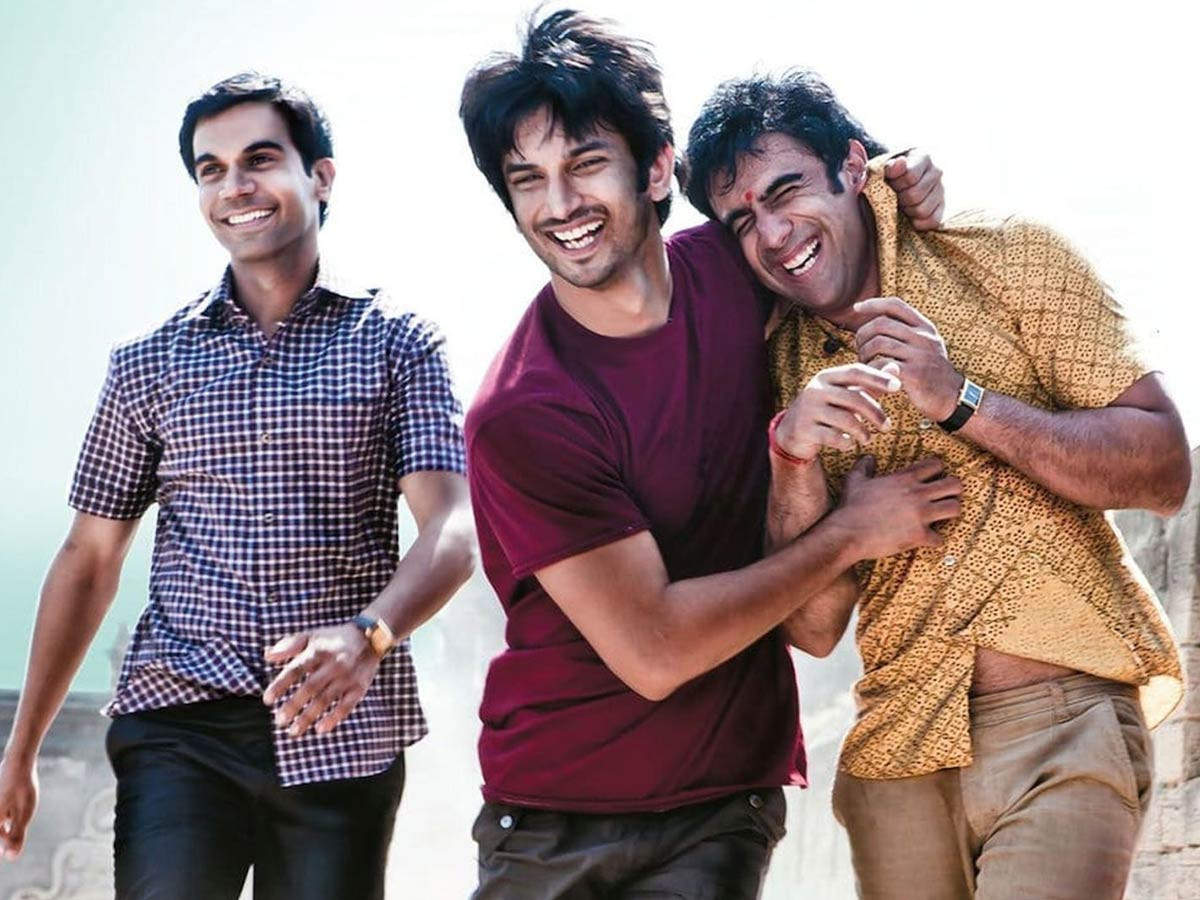
Why do you think people are so hooked on shows like Sultan Of Delhi?
There’s something very sexy about gangsters, like people who live in the grey and that’s what Sultan Of Delhi is about. It’s about hustlers and at the base of it, it’s a human story. It’s a story about human politics and about relationships. Crime just happens to be in the backdrop. And I think the Indian audience or any audience loves to live vicariously through the characters that they watch on screen. And that’s what makes Arjun Bhatia, my character, interesting to watch.
Who are some iconic movie gangsters that you may have looked at for inspiration?
Internationally, Al Pacino’s portrayal in Scarface is something that comes to mind. I also like the characters in Tarantino’s Reservoir Dogs. Closer to home, there’s Once Upon a Time In Mumbai, Company and Satya. I found this genre interesting because, in all of these films that I’ve named, there is always a human aspect with a backstory or something in the story arc of the character that leads him to where he gets. That’s always very interesting to create as an actor.
What was your collaboration with Milan Luthria like?
This was my very first time playing an absolute alpha male. From the very start, he wanted a physical transformation that took about four months of putting on muscles and training to get into the physicality of the part. He was so particular about style, all of those vintage jackets and clothes were recreated. We had to go through some five rounds of costume fittings. I discovered the character during the process of these trials, which has never happened to me before. Secondly, Milan cares about posture and he’s all about how his hero makes an entry. He works on how you walk, how you sit, how you hold the phone. It was about getting the physicality of a Milan Luthria world right.

You were said to be the first choice for the role…
I did not question it. I did not ask him why he thought of me. I just thanked my stars because everyone asked me, did you ask him why he thought of you? I was like, “No, when a good director thinks of you, you do not question why. You just go with his vision.” I walked into his office and he narrated the part and I said, yes. Milan Luthria is the kind of director whose films I’ve grown up watching, whether it’s Kachche Dhaage or whether it’s Once Upon a Time in Mumbai or Dirty Picture. I believe in the universe and stars aligning. Both Vidya Balan and I have the late Pradeep Sarkar in common because we both debuted in a Pradeep Sarkar film. And then we’ve both gone on to work on great Milan Luthria projects. And It was the universe telling me this is the step to take.
Are you a director’s actor?
I am a director’s actor and I’ve been very fortunate to work with stalwarts, whether it was the late Pradeep Sarkar, Nitesh Tiwari, Nandita Das and even Kabir Khan. What’s fascinating about all the great directors is that they look at it as a collaborative process. Those little tweaks that they make add the magic that you see on screen.
What does your approach to acting look like now versus when you started out?
When I initially started there was a certain amount of anxiety to perform. I had a big banner film Mardaani opposite a superstar, Rani Mukerji. And it’s obvious you have to bring your A-game. When you’re younger and you’re starting, you’re very controlling. You want to be over-prepared for everything and then gradually with project after project, you realise that the best creativity comes when you’re prepared to an extent, but you also leave room for spontaneity. Method is an overused and abused term. It makes you sound like this serious sort of person who sits in a dark room under a lamp with the script. And it’s not like that in reality. You have to discover a process, which is different for every character. If there is source material, like an 83, where you’re recreating a legend and there are so many videos, then that’s great. In Sultan of Delhi, there was a book, which I read, it helped me get into the details. So the process is to not have a set process.

Your characters in both Yeh Kaali Kaali Ankhein and Looop Lapeta have moments of stillness where you have to emote in close-ups. What goes through your mind while filming those?
You have to be intensely present in what’s happening to the character at that particular moment in time. And it’s interesting that you mention both of these projects because they were actually shot simultaneously. So there were days when I would shoot a scene for Yeh Kaali Kaali Ankhein with Shweta Tripathi. Then, the next day, I would be with Taapsee. It wasn’t the ideal situation. These were cerebral scenes, when there are no dialogues and when there is no over-the-top dramatic action and you’re just expressing without
any words, that is the most challenging part of acting.
What’s a piece of advice that you got from Rani Mukerji?
There was a time when I must have been looking stressed. This was before a major scene and she told me to breathe and said that when you’re relaxed you’ll realise that everyone, whether it is the director, the assistants and the camera people are all here to make sure that the scene works and we get the best from you. That very simple advice that everyone is here to make sure that the best happens put me at ease. That’s the advice that I carry with me on every set.
Are you in touch with Taapsee Pannu after Looop Lapeta?
Just before the premiere of Sultan, I asked Taapsee if she was in town and if she’d like to come and she told me she was shooting abroad. And I wished her well for Dhak Dhak and she wished me for Sultan. I still have a WhatsApp group with members of the cast of Chichore called The Chichoras. So you do keep in touch because, at the end of the day, you’ve been on an adventure together. You have lived as characters, you have travelled to different locations. You understand that everyone gets busy. It’s not like everyone hangs out together or socialises all the time. But when you do meet and when you do connect, it’s always recalling fond memories from the sets.
What are some of your memories of Sushant Singh Rajput?
He was an incredibly giving co-star, and he was one of the most intelligent actors who I ever
worked with.

A lot of A-list stars and directors are making their OTT debuts. Do you think that saturates the space?
No, cinema and OTT can definitely coexist. And it’s just exciting because there are some stories that lend themselves to a big-screen experience. Like a Jawan or an 83, I would love to watch these on the big screen because of the experience that they bring of community viewing sitting with popcorn with your friends. But then there are some stories that lend themselves to chapter-wise storytelling. For example, Yeh Kaali Kaali Aankhein, there’s no way that story could have been told in two hours. It allows for a lot more experimentation to happen, where you can try new ways of storytelling and new ways of performance.
Awards are just validation from within the fraternity and from the industry and who doesn’t want validation? Yes, I definitely want international recognition. In fact, I just flew overseas last week and I met someone who lives in Australia at the Paris airport, who said that he’d watched Sultan of Delhi. And I was blown away. It’s like when you least expect it when someone who doesn’t speak your language engages with your work. It tells you that they saw something with subtitles and loved it. And it was the same thing with Yeh Kaali Kaali Ankhein. I was in Istanbul and strangers stopped me, asking when season two is coming out. It just makes you feel great since both of these shows - Sultan of Delhi and Yeh Kaali Kaali Ankhein are uniquely Indian stories.
How do you wrap your day after a long shooting schedule?
If you’re shooting an intense scene, you want to get out of that zone. Meeting with friends eases you out of that. I would not look at the script on my way back home. I’ve seen a lot of people delve straight away into tomorrow’s scenes. You have to give yourself time to disengage. If I’ve got time between shoot schedules then travelling is one way to unwind. Travelling solo is something that I enjoy because then you’re with yourself. That’s therapeutic.

SHOW COMMENTS